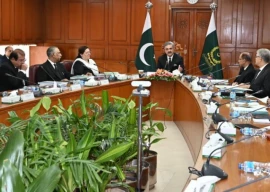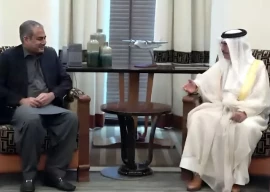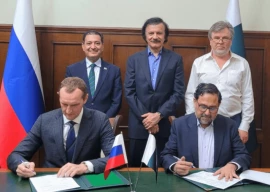
A man sentenced to death by a military court has moved the high court, challenging the power of military authorities to try civilians under the Army Act.
The petitioner urged the Lahore High Court Rawalpindi bench to strike down the section of the Army Act allowing military authorities to try civilians.
Making the law secretary, defence secretary, the military appellate court, Field General Court Martial (FGCM) president and the GHQ judge advocate general (JAG) as respondents, the petitioner argues that the army’s functions do not include trying civilians through secret trials without giving a fair chance to the defendant.
The petitioner, Abdul Malik Khan, was sentenced to death for trying to breach the security of army’s headquarters (GHQ) in Rawalpindi and for convincing an army soldier to carry out a suicide attack.
Justice Rauf Ahmed Sheikh of the LHC will take up the petition on Tuesday.
Praying the court to stop the authorities from executing him, Khan said his trial by FGCM should be voided for being unfair and illegal as he was not given a counsel of his own choice and no charge sheet against him was provided.
The petitioner’s counsel, Advocate Nadeem Shah, said Section 2(1) D of the Army Act 1952 was added by Ayub Khan in 1967, under which civilians can be tried for two military offences — convincing a military member to act against the state or offences related to official secrets.
He said the ability of military courts to try civilians is against the constitutional right to a free and fair trial. “My client was not given access to legal counsel of his own choice, nor was he given a summary of trial proceedings to appeal,” he added.
“The power to try civilians is an unreasonable classification of law. On one hand we have civilian courts which cannot try any military person accused of civilian offences without the permission of the army, while on the other, the military enjoys full power to try civilians,” he remarked.
The lawyer argued the army is part of the executive branch and it should not be allowed to exercise judicial power.
Published in The Express Tribune, April 17th, 2012.

















COMMENTS
Comments are moderated and generally will be posted if they are on-topic and not abusive.
For more information, please see our Comments FAQ